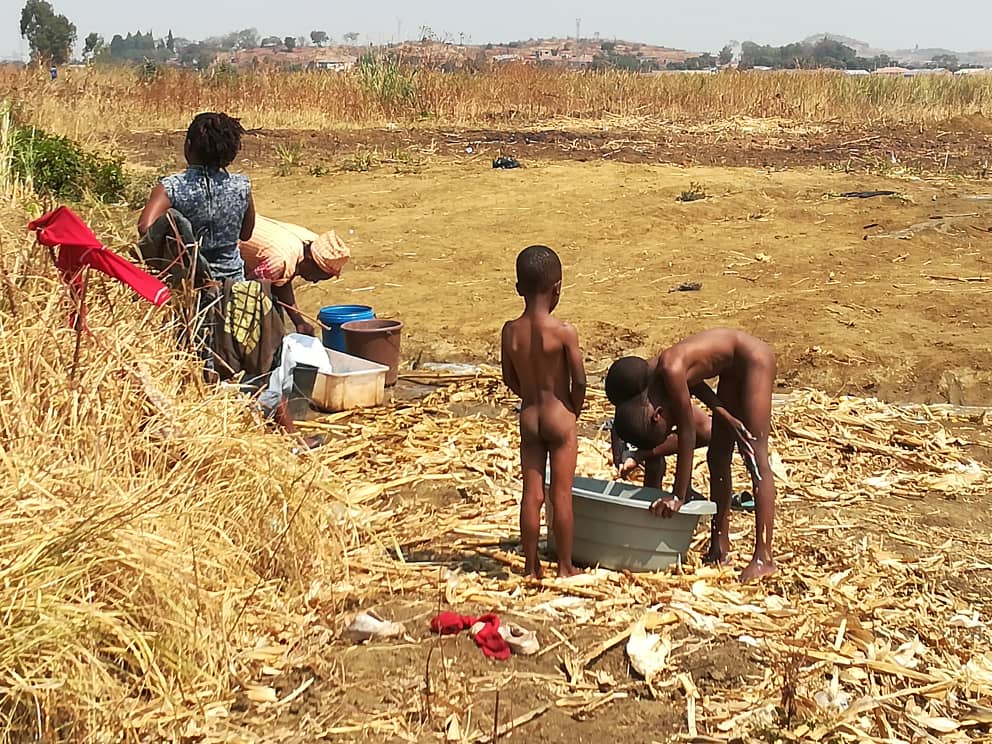
Despite all the deaths and mysterious happenings, residents crowd at the Blue Dam from the early morning hours until sunset. And in some instances, the residents clash with traditional leaders who come to perform their rituals at the Blue Dam.
“We are very much aware of the dangers at this dam but the fact of the matter is that we have no other option. We are desperate for water and this Blue Dm has become our water source.
“We come here with our children in the morning and we have to keep a watchful eye on them but it’s not only children that have died at this dam. Even adults have drowned here,” said Martha Taruona, a Kambuzuma resident.
The dire water situation for Kambuzuma residents is also exacerbated by the fact that boreholes in the area are not enough to cater for the whole population. Somehave even broken down and council is failing to repair them on time.
Interviewed residents revealed that in some instances, they have to fork out money to get drinking water.
They are also not safe from the dangers of the Blue dam.
This situation is not unique to Kambuzuma alone.
The dormitory town of Epworth, which also relies on Harare for water supply has its own pool of death where residents often crowd for water from early morning till sunset.
Several deaths, some very mysterious, have also been recorded here while in some instances, there have been alleged cases of suicide as well.
“As residents, we find ourselves with no other option except to rely on this pool of death for water. Imagine going to fetch for water knowing fully well that there are chances of you dying at the water point,” said Micah Takure, a resident.
The cases in both Kambuzuma and Epworth are reflective of the general situation in Harare especially in the high density suburbs.
And the fact that residents of Harare have to continuously rely on unprotected water sources implies they are continuously at risk of contracting water borne diseases such as cholera and typhoid.
In 2008, more than 4 000 people died in Harare as a result of a cholera outbreak and the city continues to witness cases of cholera and typhoid which have largely been linked to bad water quality.
What has worsened the water situation in Harare is the continued destruction of wetlands which act as water sources for the city.
Harare relies on its headwater wetlands for water supply and construction and agriculture on wetlands continue to impact negatively on water supply in Harare. Fertilisers used in urban farming have also increased the cost of water treatment for the Harare City Council.


